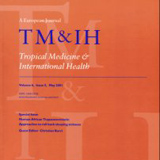
Background
Progress towards MDG4 for child survival in South Africa requires effective prevention of mother-to-child transmission (PMTCT) of HIV including increasing exclusive breastfeeding, as well as a new focus on reducing neonatal deaths. This necessitates increased focus on the pregnancy and early post-natal periods, developing and scaling up appropriate models of community-based care, especially to reach the peri-urban poor.
Methods
We used a randomised controlled trial with 30 clusters (15 in each arm) to evaluate an integrated, scalable package providing two pregnancy visits and five post-natal home visits delivered by community health workers in Umlazi, Durban, South Africa. Primary outcomes were exclusive and appropriate infant feeding at 12 weeks post-natally and HIV-free infant survival.
Results
At 12 weeks of infant age, the intervention was effective in almost doubling the rate of exclusive breastfeeding (risk ratio 1.92; 95% CI: 1.59–2.33) and increasing infant weight and length-for-age z-scores (weight difference 0.09; 95% CI: 0.00–0.18, length difference 0.11; 95% CI: 0.03–0.19). No difference was seen between study arms in HIV-free survival. Women in the intervention arm were also more likely to take their infant to the clinic within the first week of life (risk ratio 1.10; 95% CI: 1.04–1.18).
Conclusions
The trial coincided with national scale up of ARVs for PMTCT, and this could have diluted the effect of the intervention on HIV-free survival. We have demonstrated that implementation of a pro-poor integrated PMTCT and maternal, neonatal and child health home visiting model is feasible and effective. This trial could inform national primary healthcare reengineering strategies in favour of home visits. The dose effect on exclusive breastfeeding is notable as improving exclusive breastfeeding has been resistant to change in other studies targeting urban poor families.